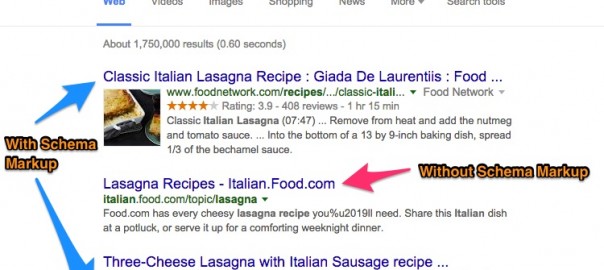So why does Local SEO matter anyways? You’ve probably heard about how you need it. Most likely someone told it’s an urgent matter and that you’re crazy for not attending to it sooner.
To be fair though, you might be a little numb to this type of hyperbole. After all, you’ve heard that you need to growth hack social media, that you need an SEO strategy, and that you need to segment custom audiences… I wouldn’t blame you if you lie awake at night wondering “when will it stop?!”
Well, I can’t tell you when it will stop, though if I were a gambling man I’d bet the farm on “never”. But I can help shed some light on why your small business should care about local SEO, and how you can make sure you don’t mess it up.
Why Local SEO Matters for Your Small Business

For starters, there are two general categories that local businesses fall into:
- Location based business – Customers purchase goods or services at your location
- Service area business – You deliver goods or services to customers at their locations
Regardless of which of the two might be applicable in your case, local SEO is going to be a huge boon for your bottom line.
Take a look at the heat map on the right. If you’ve never seen a heat map before, the darker the “heat signature” the higher the number of clicks on a given area.
As you can see, when people are performing local searches, the clicks happen on the “local listings.” Hell, even the #2 and #3 slots of organic rankings don’t get any love here.
Let’s dig a little deeper and look at some of the other benefits your business can reap from organizing a local SEO effort.
Less competition
When it comes to matters regarding SEO, less competition is always better. It means you will need to invest less time, energy, and resources to be discovered by your target audience.
It’s common sense that if you wanted to get your website to rank for the keyword “small business loans” you’re up against some pretty big competition. Unless you’re representing a major-league bank with a major-league budget, your odds of cracking into the first page (or even the top 3 pages for that matter) are pretty slim.
If, on the other hand, you want to be seen by people running queries like “small business lending in Wellesley,” your odds start to look significantly better.
This is where small businesses can really capitalize and start to make some headway. It doesn’t always have to be a David vs. Goliath story.
Increased visibility to people ready to buy!
When people perform specific local searches, they’re usually looking to buy. They’re not doing research, they’re looking for where they can go to get a particular service or product, often right at that very moment.

The data above has pretty clear implications. People are searching for information related to visiting physical locations. If yours is one of the privileged few businesses that show up when a searcher starts combing through the results, how much more likely to do you think you are to be their end destination compared to those that don’t make the top 3 slots?
One study showed the #1 slot to be 8.5x as valuable as the #5 spot in the SERPs. That data should speak for itself.
Immediate credibility
A big part of Local SEO involves attempting to legitimately accumulate fair and accurate reviews of your business. Side note: please for the love of god don’t try to find people on Fiver to write fake testimonials for you. Like many black hat seo techniques, it’s really not worth the risk or the stain on your reputation.
It’s also just lame. Don’t be lame.

Moving on, here’s how visible reviews are the gift that keep on giving…
- Human beings love a good story
- A well-written internet review tells a story
- The reader will then feel more secure and be more likely to buy
- All goes well, they’ll enjoy the process and leave you another positive review
- Loyalty begets more business (and referrals too!)
Human beings, for better or worse, are programmed to love a good story. Local business reviews cater perfectly to this predilection and serve as a fantastic facilitator when it comes to capturing potential customers.
We all want to feel like we’re making a smart purchasing decision when we buy something. Big or small, service or product, we always strive to feel like we made “the right choice”. Seeing our fellow shoppers rave about how they made the right choice when they bought from a particular business, drives us to feel increasingly secure with our decision to buy from the very same business.
If all goes according to plan at this point, we’re likely to recommend the business to our friends. And that’s the instant loyalty you can expect from building a powerful local SEO campaign that keeps you in front of customers with your best foot forward.
Are You Making These Local SEO Mistakes?
Often the best way to get started with improving something, is to remove the most common and easily identifiable mistakes. Here’s a rundown on the most egregious and commonplace mistakes small businesses make regarding their local SEO campaigns.
1. Not being consistent with NAP

Name, address, phone number. Say it ten times. Drill it into your brain, and don’t forget it. This is the cornerstone of getting your local SEO campaign started.
Consistency is key here, any discrepancy can confuse Google crawls and make it more difficult for your website to be seen by your target audience.
Start by checking all of your social accounts and all of your local business listings to make sure that they all show the exact same address, name and phone number. There are a number of great tools that can help you with this, I’d recommend you check out Moz Local first.
2. Not claiming a Google My Business page
It might not come as much of a surprise that having a Google My Business page claimed and filled in with the proper information is an important step to making sure your business is discoverable on Google.
Plain and simple, this is an easy one. Just use the link above, and create a complete business listing. It’s so simple, it’s a wonder that not everyone does it the second they’re in business.
Then again, tech support agents always have to ask “is it plugged in” first for a reason… -_-
3. Not adding your business to local listing sites
Local directories are a fantastic place to earn some quality links, nab the occasional interested web surfer, and help nudge Google to believe your business is worth a damn.

There are a number of general local directories that you should build listings for including Yelp, YellowPages and FourSquare to name a few. For a more complete list of the directories you should consider submitting to, check out HubSpot’s comprehensive post on the matter.
Beyond the standard local directories, it might also be a good idea to build join some more industry specific directories like Avvo and HomeAdvisor. This is an exceedingly easy way to get in front of people interested in your services and/or products.
A quick Google search is all you’ll need to do in order to find relevant directories to join or add your business to.
4. Not actively getting reviews from customers
There are so many benefits to having public reviews visible with your listing that it’s hard to narrow down the list. But here are the main points:
- Increased trust and credibility
- Rich snippets increase CTR
- Greater crawl frequency of your pages
Some studies have shown up to 82% greater conversion for sellers that have public reviews visible to consumers. Even a negative review, if handled promptly and effectively by a company representative, can increase the chances of a sale from a potential customer.
The goal here should be to first build a keyword optimized Yelp page with your logos and promotional photos. Afterwards all that’s left to do is make your best effort to get strong and positive reviews written on both your Google and Yelp listings (while avoiding violating any ToS agreements of course).
5. Not adding fresh content
You might already be aware, but Google heavily favors sites that are updated regularly with relevant and useful content.
It’s therefore a rather large error to leave your site stagnant. Updating it should become a regular habit and blogging is a great way to increase your local rankings.
An active blog brings multiple powerful benefits, not the least of which is the good favor of Google. By using their blog to educate their customers, businesses are able to build increased loyalty and engagement with their fans. This correlates to social media as well, where sharing a blog post can serve as yet another way to strut your stuff for your audience.
A recent study about business blogging showed:
“61% of U.S. online consumers have made a purchase decision based on a blog recommendation.
Customers buy from people and brands that they “like”. By being useful and actively updating a blog and social media accounts, you’ll not only see discoverability gains, but you’ll also be more likely to get some of those reviews we were talking about above.
6. Not using schema.org markup on your website
Ever noticed how some google search results look more fleshed out and enticing than others? That’s schema markup at work. You can add review stars, events, you name it!
This is a very powerful way to grab a searcher’s attention when the SERP first loads up. Which of these results would you be more likely to click?

It’s obvious that the recipes with more information and pictures are more likely to get clicked. They are infinitely more appealing. Consumers in today’s day and age expect to be given as much information as possible, in as little time as possible.
We also like shiny things.
Use schema markups to satisfy both of those basic human characteristics with your business’s snippet. KISSmetrics has a thorough guide on how to go about setting it up for yourself.
This article was originally published at RankPay
Digital & Social Articles on Business 2 Community(75)
Report Post






